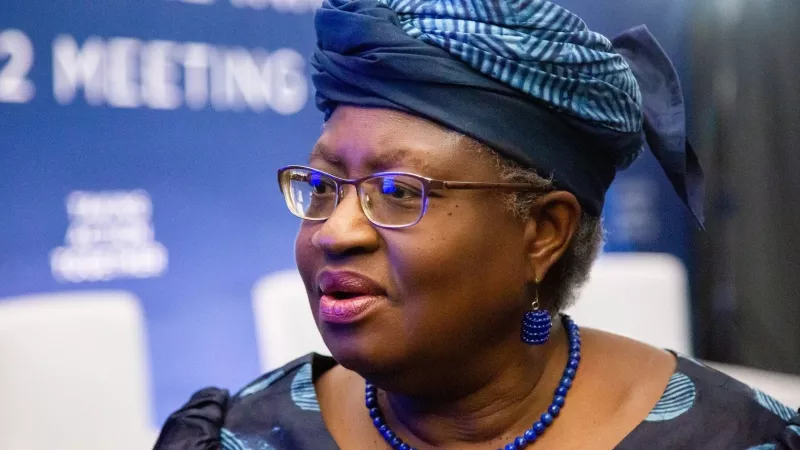FEMI ADEKOYA, LAGOS. - Despite challenges, female business owners significantly aid in economic growth. To fully realize women's potential, it will be necessary to make targeted interventions and adjustments as well as a break from social norms. Women's contributions to the economy are being celebrated and recognized around the world. The Bank of Industry (BoI) reiterates steps to remove obstacles and improve equity through expanded access to sustainable finance. Despite the huge upside potential that women-owned businesses hold for economies all over the world, the International Labour Organization (ILO) estimates that 50% of women's productive potential is underutilized, compared to 22% of men's.
Women own one out of every three legally recognized businesses, according to the International Finance Corporation (IFC). Small and medium-sized businesses (SMEs), which are disproportionately owned and operated by women, account for 80% of all jobs worldwide. However, financial institutions either provide inadequate or no support for 70% of women-owned SMEs in developing nations. They tend to be concentrated in oversaturated and low-profit sectors and markets and have lower average sales and assets.
The International Development Research Centre added that there are numerous concomitant obstacles for female entrepreneurs in developing nations, ranging in severity. For instance, they receive less recognition for their formal rights and have unequal access to education and networking opportunities. In comparison to men, they are more likely to be overrepresented in less productive, unregistered, smaller businesses and are more motivated by economic necessity. They are frequently drawn to self-employment in the hope that they can balance caring responsibilities with their financial needs. Additionally, their companies are more likely to operate in crowded markets with limited room for expansion. At the Bank of Industry's (BoI) International Women's Day Conference 2023, with the theme "Embrace Equity," Director-General of the World Trade Organization (WTO), Dr. Ngozi-Okonjo-Iweala reaffirmed this position and commended Nigerian and African women for their perseverance in the face of obstacles. She claims that the theme highlights the need for more action to ensure equity and close gender gaps. Considering the results of the most recent elections and the talented pool of educated women the nation possesses, she also reaffirmed the need for political empowerment.
While there have been notable legal reforms in a number of nations aimed at removing gender barriers, their impact is limited by a lack of enforcement, in part because of the persistence of gender-biased cultural norms and expectations. Indeed, female captains of industry also emphasised the need to end structures and systems that impede the impartial and fair representation of women across the public and private sector of the Nigerian economy. Minister of State for Industry, Trade and Investment, Mrs Mariam Katagum, noted that the 2023 IWD theme ’embrace equity’ leveled the playing field for both sexes by presenting a true representation. She stated that in order to create an equitable system, one must first comprehend the difficulties that women face, take those into consideration, and offer specialized support for both personal and professional development.
In order to further the welfare of women and promote equity, Katagum assured that the Federal Government had taken action as part of its commitment to doing so. She mentioned that a high-level council on women's economic empowerment in Nigeria had just been established as a forum for women's empowerment in both the public and private sectors.

“According to the World Bank, closing gender gaps in key economic sectors in Nigeria could yield additional gains of as high as $22.9 billion or 5.8 per cent of overall GDP yearly. Realising these gains would be huge for Nigerians. At the WTO, we are working hard to ensure more women are able to access global value chains, because research has shown that women who trade globally make twice the incomes of their counterparts. I am glad to hear what the Bank of Industry is doing in empowering women and delivering end-to-end design and execution of programmes targeted at businesses. “At the local level, we must build on existing programmes to promote equity and create a better future for all”, she added. “Equity is a means to achieving gender equality and we must remain committed to addressing systems and structures that stifle women’s growth. “We must continue to speak out against gender inequality and violence, provide equitable access to finance, and enhance entrepreneurial support.
“We must remove barriers to women’s participation in trade and commerce and push to close wage gaps between sexes”, she said. “At the same time, President Muhammadu Buhari launched the women economic empowerment policy dialogue and two Federal Government flagship programs which are the Adolescent Girls Initiative Learning and Empowerment (AGILE) and the Nigerian Women Project supported by the world bank. “I, therefore, encourage everyone to become involved in these initiatives and look for ways to be a part of it as women have a right to employ fair working conditions. “We must continue to foster the right conditions and capacities for women everywhere to achieve their full economic potential. At the policy levels, we must ensure that trade policy and public procurement works for women given the important role women play in the economy,” she said.




